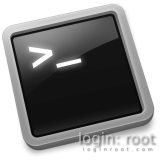There are two methods of doing this. So first method is for kernels after 2.6.32, and second for older ones.
To view kernel version, simply enter:
> uname -r
3.8.0-29-generic
find Your USB device, no mather what it is USB flash drive, Yubikey, USB disk drive:
> lsusb
Bus 001 Device 002: ID 8087:0024 Intel Corp. Integrated Rate Matching Hub
Bus 002 Device 002: ID 8087:0024 Intel Corp. Integrated Rate Matching Hub
Bus 001 Device 001: ID 1d6b:0002 Linux Foundation 2.0 root hub
Bus 002 Device 001: ID 1d6b:0002 Linux Foundation 2.0 root hub
Bus 002 Device 005: ID 12d1:14db Huawei Technologies Co., Ltd.
Bus 002 Device 006: ID 0424:2514 Standard Microsystems Corp. USB 2.0 Hub
> lsusb -t
/: Bus 02.Port 1: Dev 1, Class=root_hub, Driver=ehci-pci/2p, 480M
|__ Port 1: Dev 2, If 0, Class=hub, Driver=hub/6p, 480M
|__ Port 1: Dev 5, If 0, Class=comm., Driver=cdc_ether, 480M
|__ Port 1: Dev 5, If 1, Class=data, Driver=cdc_ether, 480M
|__ Port 5: Dev 6, If 0, Class=hub, Driver=hub/4p, 480M
/: Bus 01.Port 1: Dev 1, Class=root_hub, Driver=ehci-pci/2p, 480M
|__ Port 1: Dev 2, If 0, Class=hub, Driver=hub/6p, 480M
Our target is:
Bus 002 Device 005: ID 12d1:14db Huawei Technologies Co., Ltd.
Which is located at 2-1.1 (tree part where device 5 is located)
First method (newer kernel)
To turn it off simply echo address:
echo '2-1.1' > /sys/bus/usb/drivers/usb/unbind
here is result from syslog:
Feb 20 12:03:27 vgsms6 kernel: [ 1734.993667] cdc_ether 2-1.1:1.0 eth2: unregister 'cdc_ether' usb-0000:00:1d.0-1.1, CDC Ethernet Device
Unfortunately this device was still visible in lsusb, so I turned off whole usb hub there (2-1), and voila, usb device gone.
To enable it, echo same address to “bind” part, for example:
echo '2-1.1' > /sys/bus/usb/drivers/usb/bind
Second method (older kernel)
You need to go to devices:
cd /sys/bus/usb/devices
Addressess will be listed similar:
/sys/bus/usb/devices# ls -alh
total 0
drwxr-xr-x 2 root root 0 Feb 20 11:34 .
drwxr-xr-x 4 root root 0 Feb 20 11:34 ..
lrwxrwxrwx 1 root root 0 Feb 20 11:34 1-0:1.0 -> ../../../devices/pci0000:00/0000:00:1a.0/usb1/1-0:1.0
lrwxrwxrwx 1 root root 0 Feb 20 11:34 1-1 -> ../../../devices/pci0000:00/0000:00:1a.0/usb1/1-1
lrwxrwxrwx 1 root root 0 Feb 20 11:34 1-1:1.0 -> ../../../devices/pci0000:00/0000:00:1a.0/usb1/1-1/1-1:1.0
lrwxrwxrwx 1 root root 0 Feb 20 11:34 2-0:1.0 -> ../../../devices/pci0000:00/0000:00:1d.0/usb2/2-0:1.0
lrwxrwxrwx 1 root root 0 Feb 20 11:34 2-1 -> ../../../devices/pci0000:00/0000:00:1d.0/usb2/2-1
lrwxrwxrwx 1 root root 0 Feb 20 12:34 2-1.1 -> ../../../devices/pci0000:00/0000:00:1d.0/usb2/2-1/2-1.1
lrwxrwxrwx 1 root root 0 Feb 20 12:34 2-1:1.0 -> ../../../devices/pci0000:00/0000:00:1d.0/usb2/2-1/2-1:1.0
lrwxrwxrwx 1 root root 0 Feb 20 12:34 2-1.1:1.0 -> ../../../devices/pci0000:00/0000:00:1d.0/usb2/2-1/2-1.1/2-1.1:1.0
lrwxrwxrwx 1 root root 0 Feb 20 12:34 2-1.1:1.1 -> ../../../devices/pci0000:00/0000:00:1d.0/usb2/2-1/2-1.1/2-1.1:1.1
lrwxrwxrwx 1 root root 0 Feb 20 12:34 2-1.5 -> ../../../devices/pci0000:00/0000:00:1d.0/usb2/2-1/2-1.5
lrwxrwxrwx 1 root root 0 Feb 20 12:34 2-1.5:1.0 -> ../../../devices/pci0000:00/0000:00:1d.0/usb2/2-1/2-1.5/2-1.5:1.0
lrwxrwxrwx 1 root root 0 Feb 20 11:34 usb1 -> ../../../devices/pci0000:00/0000:00:1a.0/usb1
lrwxrwxrwx 1 root root 0 Feb 20 11:34 usb2 -> ../../../devices/pci0000:00/0000:00:1d.0/usb2
So go to in our example 2-1.1/power (full path /sys/bus/usb/devices2-1.1/power)
cd /sys/bus/usb/devices2-1.1/power
to turn off device:
echo suspend > level
to turn on:
echo on > level

Leave a Reply